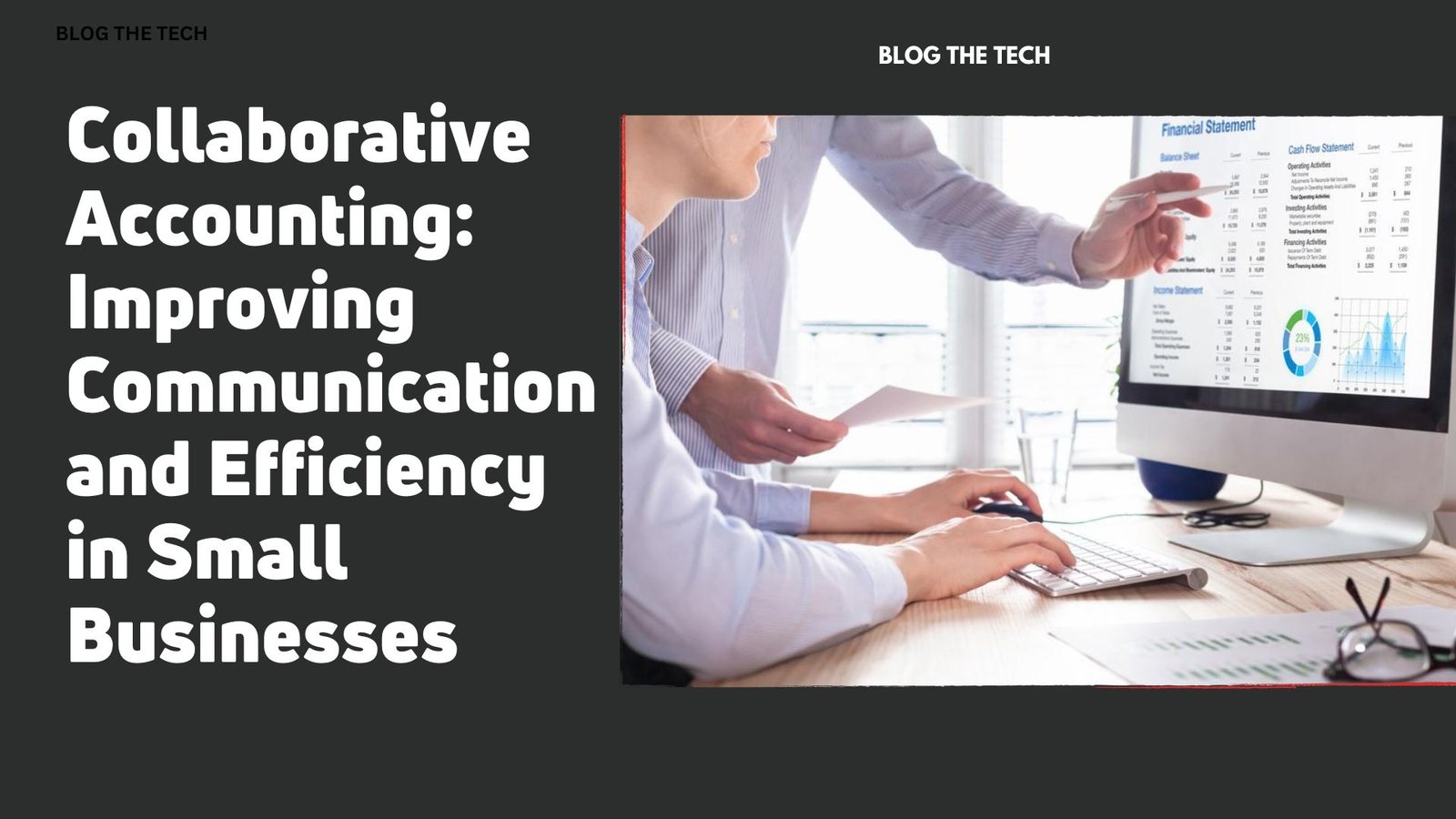The article discusses the concept of collaborative accounting for small businesses, highlighting its benefits and providing guidance on selecting appropriate collaborative accounting software.
As a small business owner, you’re constantly looking for ways to make your operations more efficient. One way you can do this is by utilizing collaborative accounting, which helps streamline your business operations and improves communication with your accountant, employees, or any other people involved in your business. Keep reading to learn what collaborative accounting is, its benefits, and what to look for in collaborative accounting software.

What is collaborative accounting?
Collaborative accounting enables you, external accountants, and anyone involved in the accounting process to work together simultaneously, even when you’re in different offices or connected to different servers. This type of accounting generally relies on cloud-based accounting software to help foster sharing and collaboration. These tools enable users to access relevant financial information, provide insights, track changes, and ensure everyone works on the most up-to-date data. Plus, it still allows you to maintain control as the business owner while upholding confidentiality and security protocols.
What are the benefits of collaborative accounting?
When it comes to small business collaborative accounting, it can provide many benefits to your organization, including:
Direct, real-time communication
With collaborative accounting, you and your team can work together in real time, no matter where you are. As your accountant updates your information, you can immediately access it through your cloud-based accounting software. Similarly, your accountant can review your transactions and records without requiring you to send any files. The great benefit of this approach is that you and your accountant save significant administrative time since you can share data easily. You can check the information whenever you want, and it will always be up-to-date, enabling you to generate timely reports and keep your financial records current.
Reduced risk for errors
In many organizations, several business managers maintain their own spreadsheets that contain accounting and customer information. However, sharing data between colleagues can lead to errors when merging separate data sheets. Using spreadsheets for managing complex accounting processes can also be risky as different people may use different categories for items, leading to redundant data.
Collaborative accounting eliminates these issues by providing a centralized location for your business financials that your team can easily access. By having multiple professionals reviewing and verifying financial data, there’s a higher level of accountability and oversight. This can help to catch any mistakes or discrepancies early on before they become bigger problems.
Improved efficiency
Utilizing a collaborative accounting system can make your business more efficient and productive with automation. Several time-consuming accounting tasks — e.g., data entry, bookkeeping, etc. — can be easily automated, allowing you to optimize your work schedule and focus on more pressing matters regarding your small business.
For example, many accounting platforms offer invoice software, enabling you to set up recurring invoices that automatically send out to your clients or customers on a specific time interval, so there’s no need to manually create and send invoices each time. Ultimately, this process will make better use of your skills and time, which can lead to greater cost savings for your small business.
Better security
Keeping your finances safe and secure is key for any small business, which is why you can rely on cloud-based collaborative accounting software. With traditional accounting, you may have your data and documents stored in a file cabinet or on your computer. The problem is that these storage solutions are susceptible to theft, tampering, and natural disasters, leaving your financial information compromised. With collaborative accounting, the software provider manages data storage, backups, and security issues. The best platforms offer two-factor authentication, firewall-protected servers, and bank-level encryption technology to help give you peace of mind that your financial data remains private and secure.
Choosing a collaborative accounting software
Cloud-based software is the foundation for collaborative accounting, so you want to ensure you pick the right solution for your small business. Here are some key features when choosing a collaborative accounting platform.
- Receipt and expense tracker — Business expense tracking is a key feature for any collaborative accounting platform. You and your team can easily take pictures of your receipts, and then the software automatically matches all your receipt information to an existing transaction in your business account.
- Tax deductions — Filing taxes is essential to any business, so you want to make it as easy as possible. The right software can automatically categorize your business expenses, make tax calculations, and organize your tax-time documents to ensure you get every tax deduction you deserve.
- Real-time business reporting — Choose an accounting platform that allows you to track business performance at a glance and generate professional reports that you can easily share with your accountant and stakeholders.
- Invoicing — Find an accounting solution that enables you to create professional custom invoices, track invoice status, send payment reminders, set up recurring invoices, and match payments to invoices automatically.
- Mobile support — No matter where you or your team are, everyone can stay connected with an easy-to-use mobile app to enter transactions, log expenses, invoice customers, and send reports.
- Customer support — When you and your team start using collaborative accounting software, there can be a learning curve. That’s why it’s important to find a platform offering customer support to answer your and your team’s questions.
- Inventory management — If you’re a small business that manages an inventory, collaborative accounting software can help you and your team track every product you buy and sell in real-time and get notifications when you’re low on stock.




